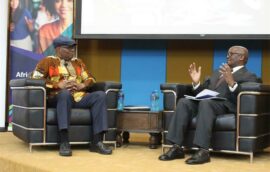Gauteng offers 4000 top achievers bursaries
“We are extremely proud of the class of 2023, who performed exceptionally well in various subjects under extreme circumstances."

The Gauteng government (GPG) is offering a bursary scheme for the academic year, which will benefit over 4 000 top-achieving matriculants from Gauteng’s no-fee-paying schools and those for learners with special needs.
Gauteng Premier Panyaza Lesufi and Education MEC Matome Chiloane awarded bursaries to the province’s cream of the crop, many coming from disadvantaged communities in the townships, informal settlements and hostels (TISH).
According to Lesufi, the province will invest R560m in bursaries through the Gauteng City Region Academy (GCRA) bursary scheme, with over 4 000 learners benefitting from the province providing financial assistance to learners aged between 18 and 35 hailing mainly from historically disadvantaged communities.
ALSO READ: Mayor leads back-to-school campaign
The bursary covers tuition, books, accommodation, a transport and once-off laptop allowance, and a living allowance. It also covers undergraduate studies and post-graduate studies. GCRA bursars pursuing their post-graduate studies had a chance to address incoming bursars.
Among them were Sechaba Morajane, a University of Johannesburg Masters in engineering student, and Kutlwano Mangalani, a Wits University final-year clinical medical practice student, who detailed how this bursary helped them further their studies and alleviate the financial strain of student fees.
“We are extremely proud of the class of 2023, who performed exceptionally well in various subjects under extreme circumstances.
“This performance is also a testament to our educators’ dedication and hard work and the critical upbringing role played by parents,” said Chiloane.
The GCRA bursary is one of the most comprehensive provincial bursary schemes across SA, supporting students in various fields of study, from aviation to medicine and IT.
More than 90% of the scheme’s bursars are poor, black learners, while almost 60% are women.
“Through the GCRA bursary scheme, we are investing in the development of skills of the future.
ALSO READ: Lesiba Secondary School achieves 94% pass rate
“We are arming our youth with the skills to ensure our country is competitive and contributes to the economic development of Gauteng,” said Lesufi.
“We have societal challenges only these learners can fix for us. This will be the generation that provides new ideas, local products and solutions for our province.”




